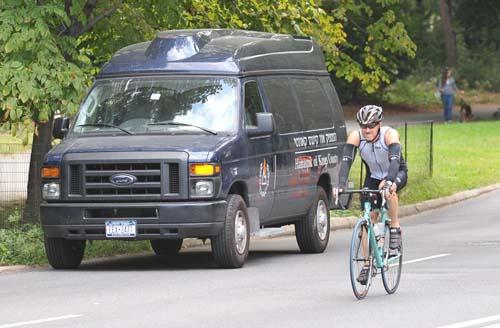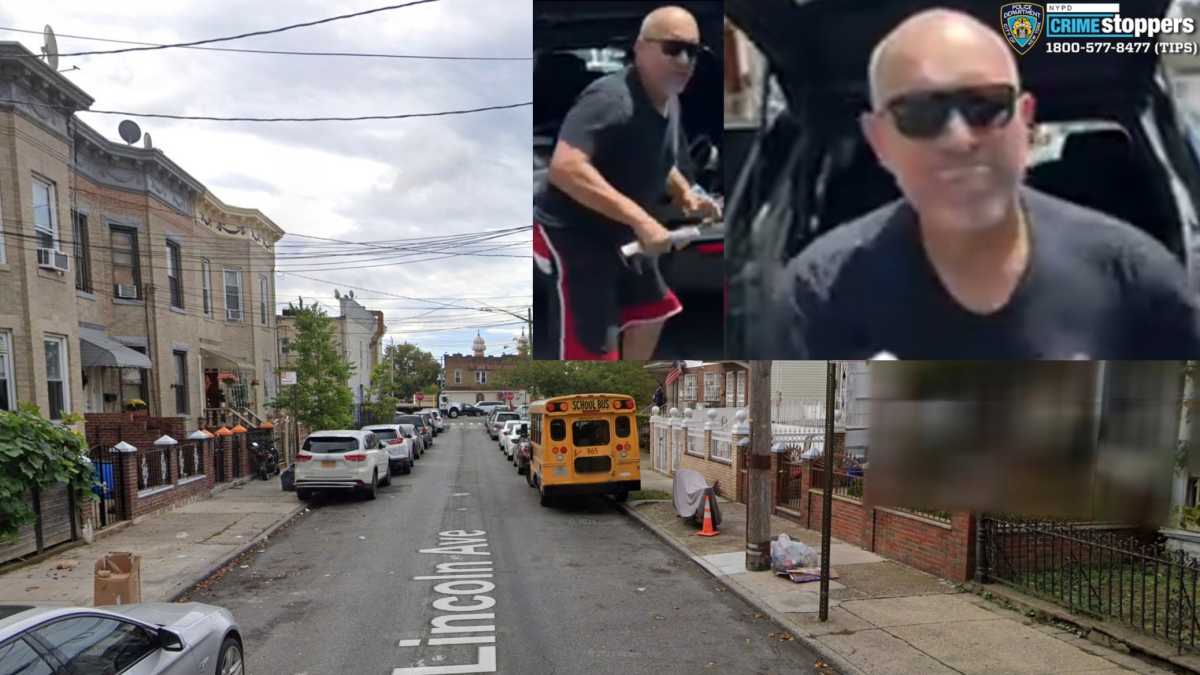Last week’s teen-inspired march demanding a car-free Prospect Park has created a new push for a three-month pilot program that would finally determine just how traffic would be impacted if the city officially closed off the 585-acre green space to vehicles.
“Right now all we want is a study on the impact of closing Prospect Park for good,” said Fort Greene City Councilwoman Letitia James, who marched across the Brooklyn Bridge with over 100 borough youths last week. “[The city] has reduced the park hours, now we want to close Prospect Park for two to three months and see what happens. Right now, no one is in a position to see what would happen if we got rid of the cars coming through Prospect Park. All we are asking for is the city to give it a try.”
Yet residents living on the southern end of the park are far from excited with the prospect of completely closing the park to traffic, since the cars and trucks will undoubtedly be re-routed to their streets.
Community leaders in Windsor Terrace, Kensington and Flatbush claimed that they were not consulted about the protest march, which was spearheaded by the bicyclist and pedestrian advocate group Transportation Alternatives [TA].
At the close of the march, the teens, which were part of TA’s Prospect Park Youth Advocate Program, dropped off a makeshift mailbox filled with 10,000 postcards at City Hall demanding that Prospect Park be closed to traffic for good.
Randy Peers, Chairman of Windsor Terrace and Sunset Park’s Community Board 7, said Prospect Park Southwest has already been adversely impacted by the city’s decision to limit traffic in the park to four hours – two during the morning rush and two in the evening rush.
“It will only get worse if you conduct a pilot program,” he said. “All you have to do is look at a map. Windsor Terrace is right between Prospect Park and Green-Wood cemetery. If you close the park to traffic, no one is going to go around the cemetery to get where they need to go. It’s going to impact us.”
Alvin Berk, chair of Community Board 14 at the Flatbush end of the park, said that his board has long opposed closing Prospect Park to vehicular traffic.
“What problem is this trying to solve?” Berk asked.
Citing a Department of Transportation study conducted in the late 1990s, Berk said that closing the park to traffic during the morning hours will divert 400 additional cars per hour to Parkside Avenue.
“That’s going to cause a substantial amount of additional exhaust that the local residents are going to have to inhale,” he said. “That’s unfair to the residents of the streets that would have to carry this additional traffic.”
Berk added that no pilot program should be permitted without a full environmental impact study.
TA officials said that while individual community boards may not have been cognizant of their plans, their representatives in the city council were.
Thier position for a car free park is well known, explained TA spokesperson Wiley Norvell, who said that past traffic studies have shown that when traffic routes are changed, the surrounding streets aren’t impacted.
“Previous studies in other parts of the city show that when one artery is removed or altered, many of those car trips disappear. In the traffic world we call it shrinkage,” he said. “Traffic is not like water, it doesn’t spill over after there’s a fixed change that people know about ahead of time.”
Norvell also believes that closing the park to traffic entirely is simply the next logical step.
“We’ve gotten this far without the sky falling,” he said. “It’s reasonable to assume that that ridding the park of the last few hours of traffic left will not cause a cataclysm.”
Berk noted that according to the previous DOT study closing Prospect Park would result in some slight vehicular shrinkage – by about six percent – not enough in his estimation to warrant the park’s closure to cars and trucks.
Still, no one will know the impacts until a study is done, explained City Councilman Bill de Blasio.
“I want an objective answer,” he said. “If we find that there is too much congestion in the streets around Prospect Park, then we should leave it the way it is. If an objective study by the [Department of Transportation] proves that there would be a very minimal impact, we should move forward with a car free park.”
“Without a real study its all just theory,” he said.






















